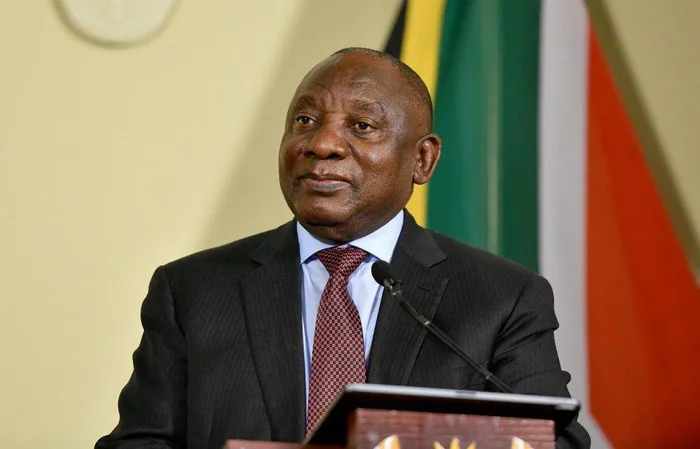Political analysts question the effectiveness of Ramaphosa's commission of inquiry

President Cyril Ramaphosa's move to establish a commission of inquiry into allegations regarding law enforcement agencies has been criticised.
Image: X/Presidency
While President Cyril Ramaphosa’s move to place Police Minister Senzo Mchunu on special leave was applauded, his decision to establish a commission of inquiry into allegations regarding law enforcement agencies has been criticised.
Political analysts said that the commission could be a waste of time and resources, like the Zondo commission, which was established to investigate the allegations of State Capture in 2019.
Ramaphosa announced his decision to establish the commission of inquiry and place Mchunu on special leave following allegations made by KwaZulu-Natal police commissioner Nhlanhla Mkhwanazi, who accused Mchunu of sabotaging a probe into political killings by seizing 121 open case files in March and pushing to disband the team tasked with the probe.
Mkhwanazi claimed that Mchunu had connections to members of a crime syndicate.
He also accused some senior police officials of being involved in corruption.
Addressing the nation on the allegations on Sunday night, Ramaphosa said the allegations raise serious concerns around the constitution, the rule of law and national security, adding that a judicial commission of inquiry would be established to investigate allegations relating to the infiltration of law enforcement, intelligence and associated institutions within the criminal justice system by criminal syndicates.
Ramaphosa also added that in order for the commission to execute its functions effectively, he decided to put Mchunu on a leave of absence with immediate effect.
However, political analyst Professor Ntsikelelo Breakfast said this was a well-calculated political response, adding that Ramaphosa was careful in framing the speech.
Breakfast said that, although the decision to place Mchunu on leave was a good move, he was worried about the commission and its time frame.
He said this appears as if there is no sense of urgency and might run for a longer period.
“I understand this is a very complex situation and those claims must be tested, but what about the findings of the Zondo commission, because it has looked into this issue and the findings were not implemented,” he said.
Another political analyst, Sethulego Matebesi, said that while the steps taken by Ramaphosa were appropriate and timely, he was disappointed by the establishment of a commission of inquiry, as history has taught “us” that these costly structures have not led to any tangible outcomes in the past.
“However, the additional measures of placing Minister Mchunu on leave and appointing an Acting Police Minister demonstrate the President’s resolve to fight crime and corruption head-on. Many South Africans would have expected more drastic steps, such as dismissals. But that would set a dangerous precedent as all the allegations must first be investigated,” Matebesi said.
Professor Siphamandla Zondo said it was expected that Ramaphosa would establish a formal and legal process by which Mkhanazi’s revelations would be established. He said this might take long, as it is common for the chairs to request an extension on the basis of incomplete work.
Zondo also added that the placing of the Mchunu on special is designed to indicate that the President is not prejudging the issue, but it will be read by some as protection of one of the President’s own.
“He will remain employed throughout the time, and whatever comes up in the commission will be associated with the government. If I were Mchunu, I would make things easier for the president and resign from the Cabinet and remain in Parliament. But that is a moral judgement only he can make depending on the strength of his moral convictions about what is right or not right.”
Zakhele Ndlovu, another political analyst, said the commission is needed to look into the rotten SAPS and get to the bottom of the rot, adding that placing Mchunu on special leave is a welcome development.
“ As we know, Mchunu is a strong ally of Ramaphosa and this is not an easy decision for Ramaphosa. Ramaphosa was under tremendous pressure to suspend Mchunu to send a message that he does not tolerate corruption. He should have taken a step further and suspend Nkabane and Simelane.”
Meanwhile, Ian Cameron, the chairperson of the Portfolio Committee on Police, said the country has seen this movie before, where the Zondo commission cost the taxpayer billions, yet few of its recommendations have been enforced, and not a single kingpin sits behind bars.
“South Africans cannot afford more talk shops with no accountability, he said.